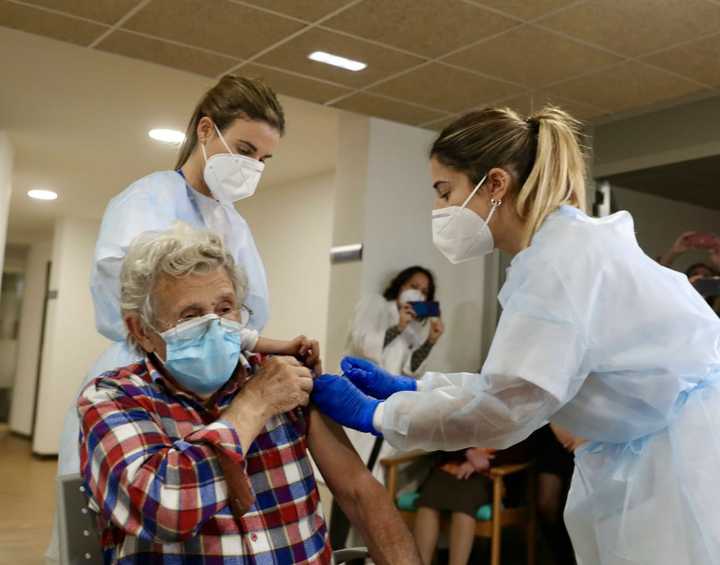Concerns are arising about what the impacts are for people who get the first, but not the second dose of the mRNA-type COVID-19 vaccine. There are also questions about whether a person can mix vaccines - taking different products for the first and second doses.
Data is limited, but it seems that some people can handle a little deviation from the vaccination schedule just fine. It is better, of course, to adhere to the researched and approved schedule, the CDC and FDA said.
VACCINATION
The mRNA-type COVID-19 vaccine requires two doses to be administered weeks apart for full effectiveness.
Because the vaccine is so new, there isn’t much data on what happens when people don’t take the vaccine within the allotted timeframe, according to the U.S. Food and Drug Administration and Centers for Disease Control.
The recommended wait times between doses for two of the most widely available vaccines are 21 days between the first and second dose for the Pfizer-BioNTech-produced vaccine, and 28 days between doses for the vaccine manufactured by Moderna. Both are mRNA-type vaccines.
The CDC said people should try to adhere to the recommended schedule, but a second dose can be given anywhere up to 6 weeks after the first dose. It’s not clear what taking the second dose later than that would do - vaccine studies didn’t examine what happens after 6 weeks.
“There are currently limited data on the efficacy of mRNA COVID-19 vaccines administered beyond this window,” the CDC said. “If the second dose is administered beyond these intervals, there is no need to restart the series.”
WHAT HAPPENS IF I HAVE TO TAKE DIFFERENT VACCINES?
If someone does need to or accidentally takes a mix of vaccines - due to limited availability or some other reason - that person should take the alternate second dose after consultation with their medical care provider.
It does not appear it is ever advisable to get a third COVID-19 vaccination dose regardless of timing and which vaccines were taken, according to the CDC.
In conclusion, the CDC and FDA both note that there is not enough data collected to know the impact of taking a second vaccine dose later than 6 weeks. However, there does not seem to be any negative impact from taking the second dose up to 42 days after the first dose.
Click here to follow Daily Voice Greenburgh and receive free news updates.
